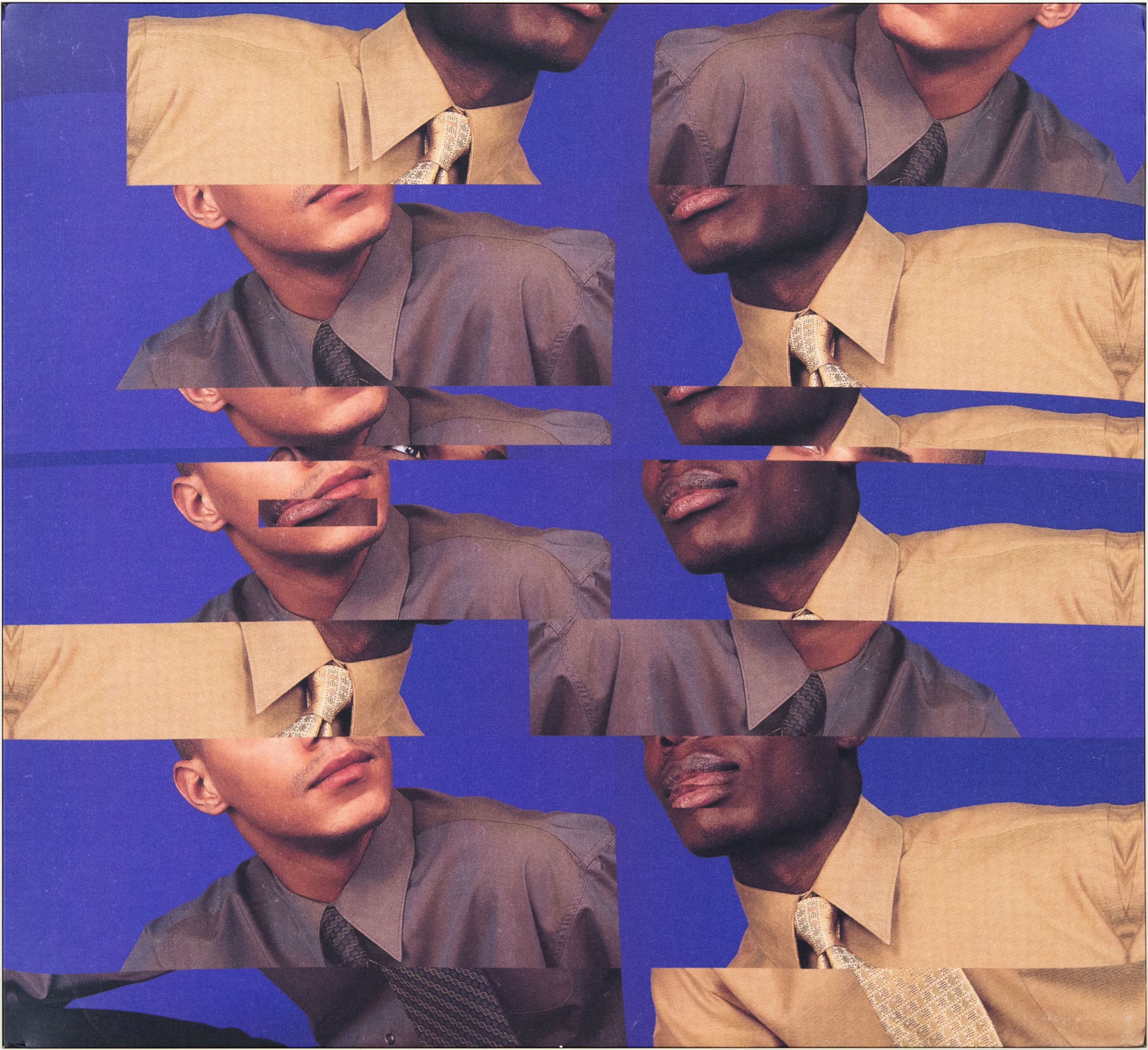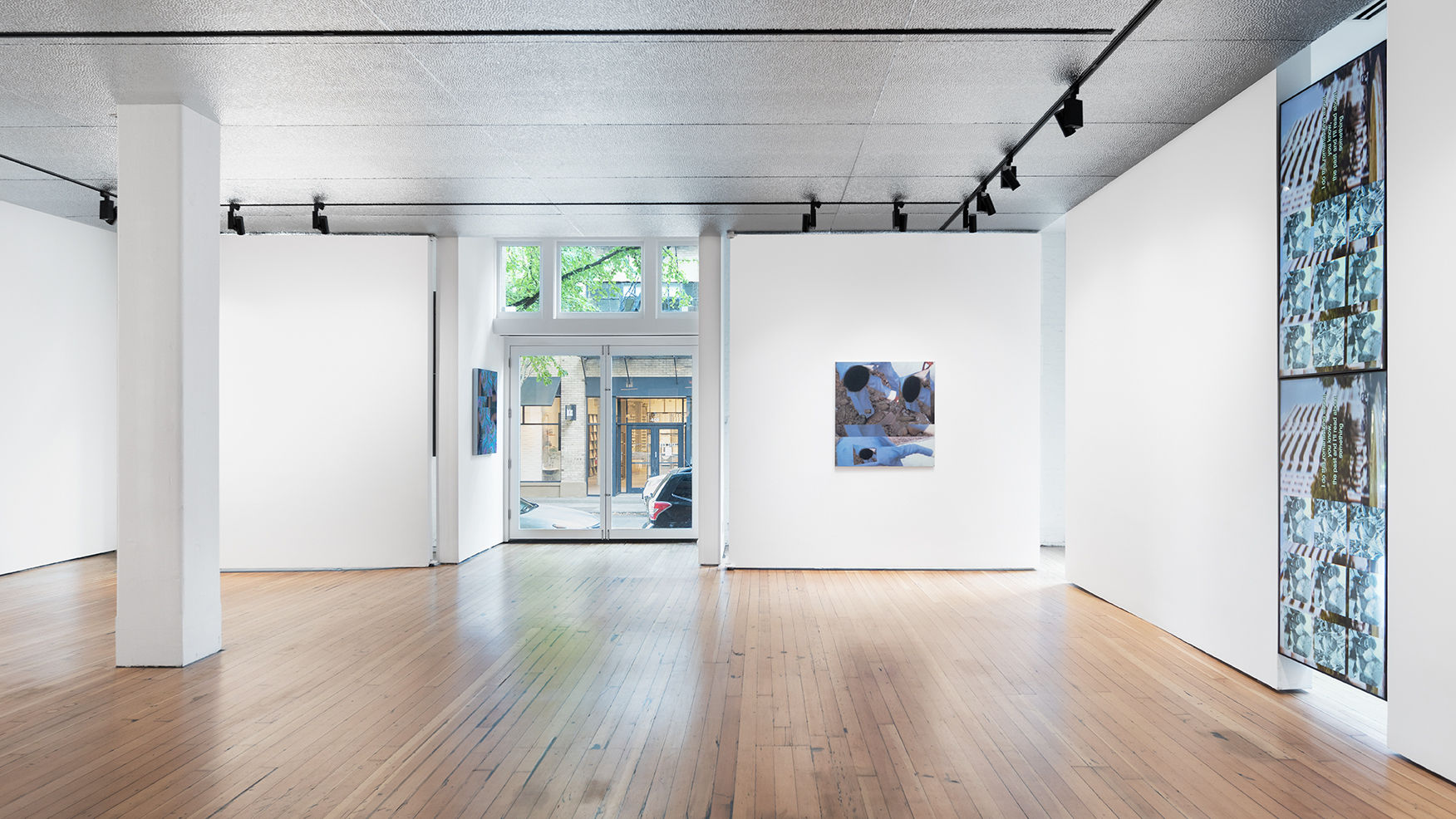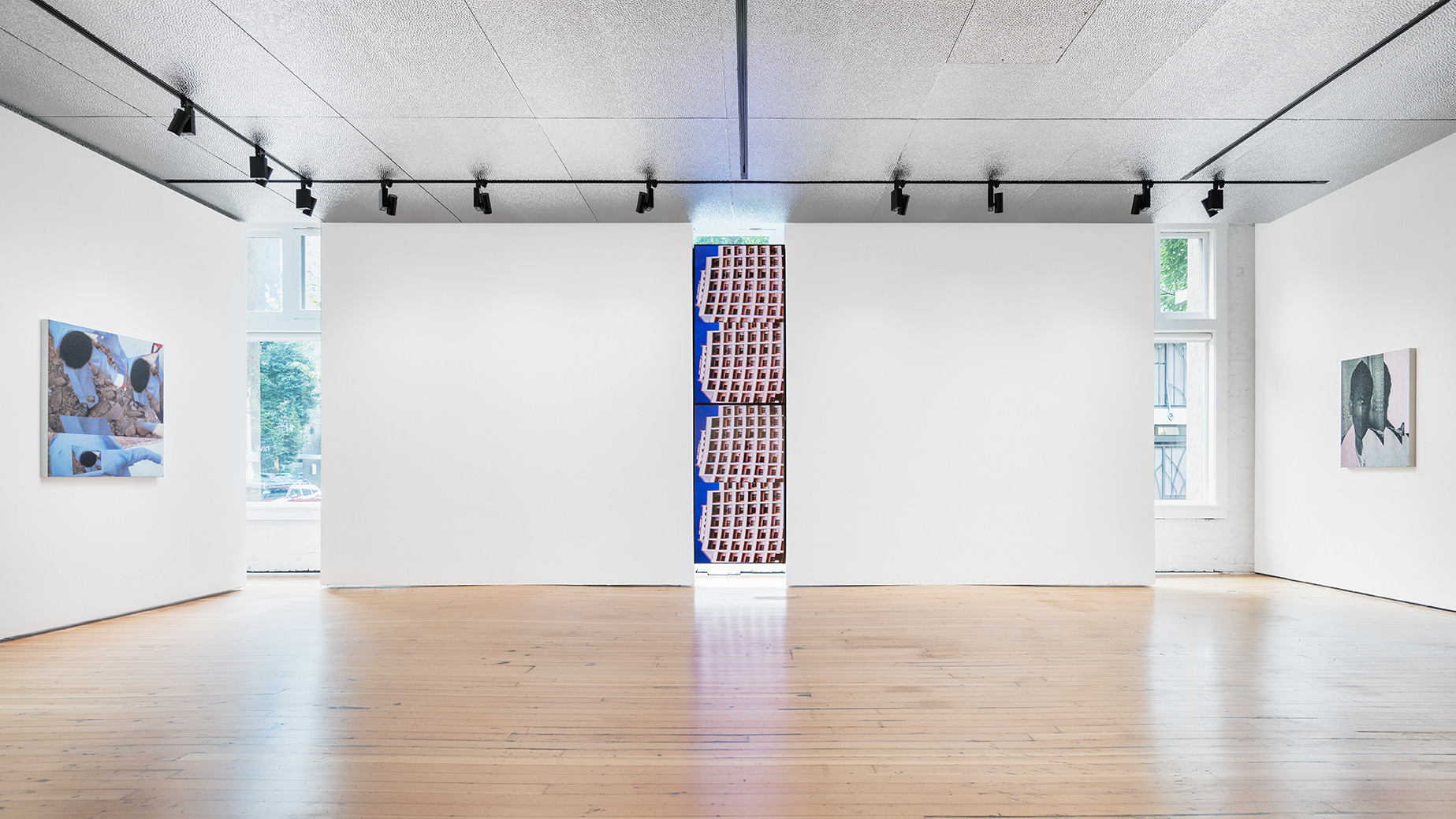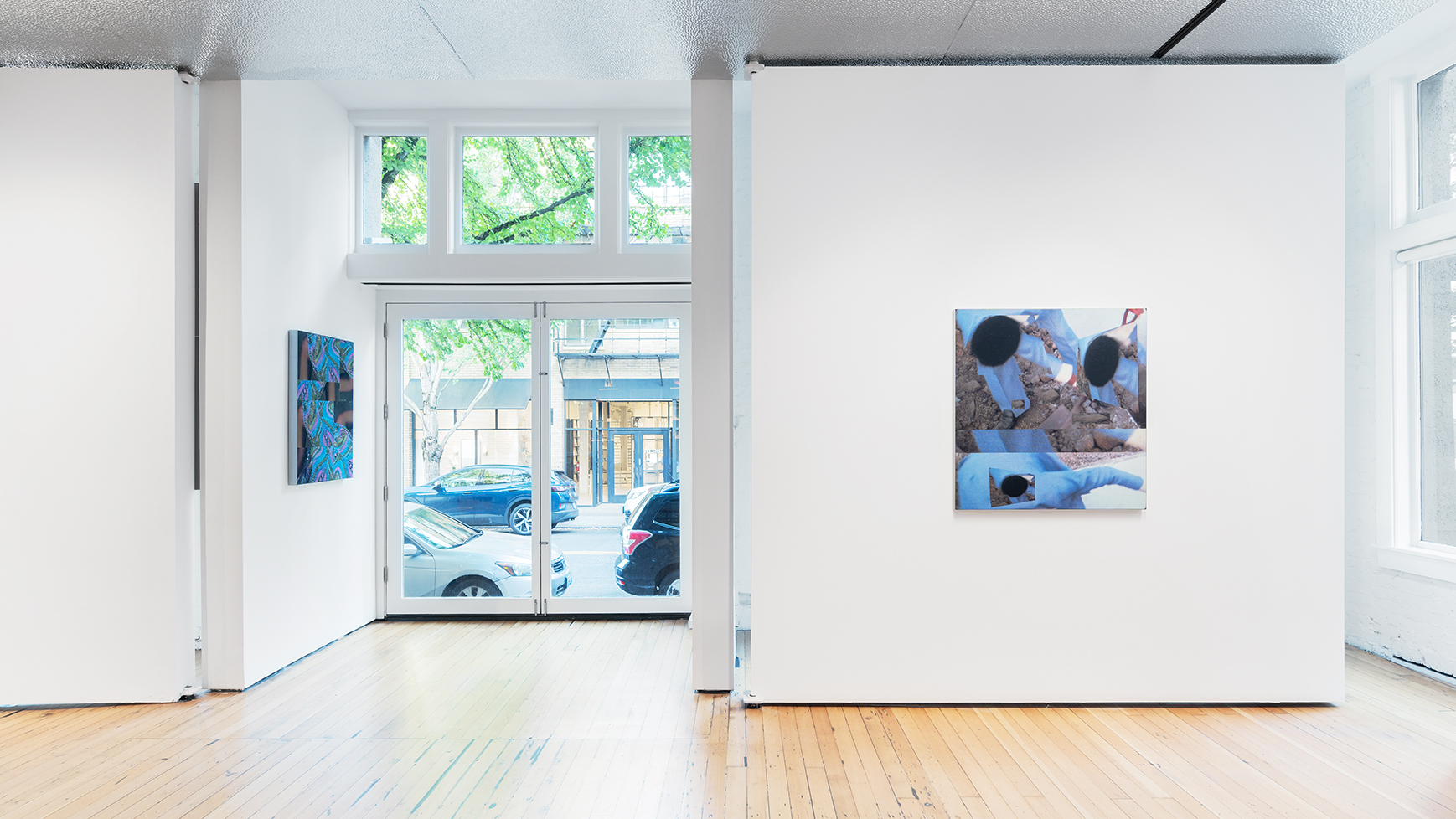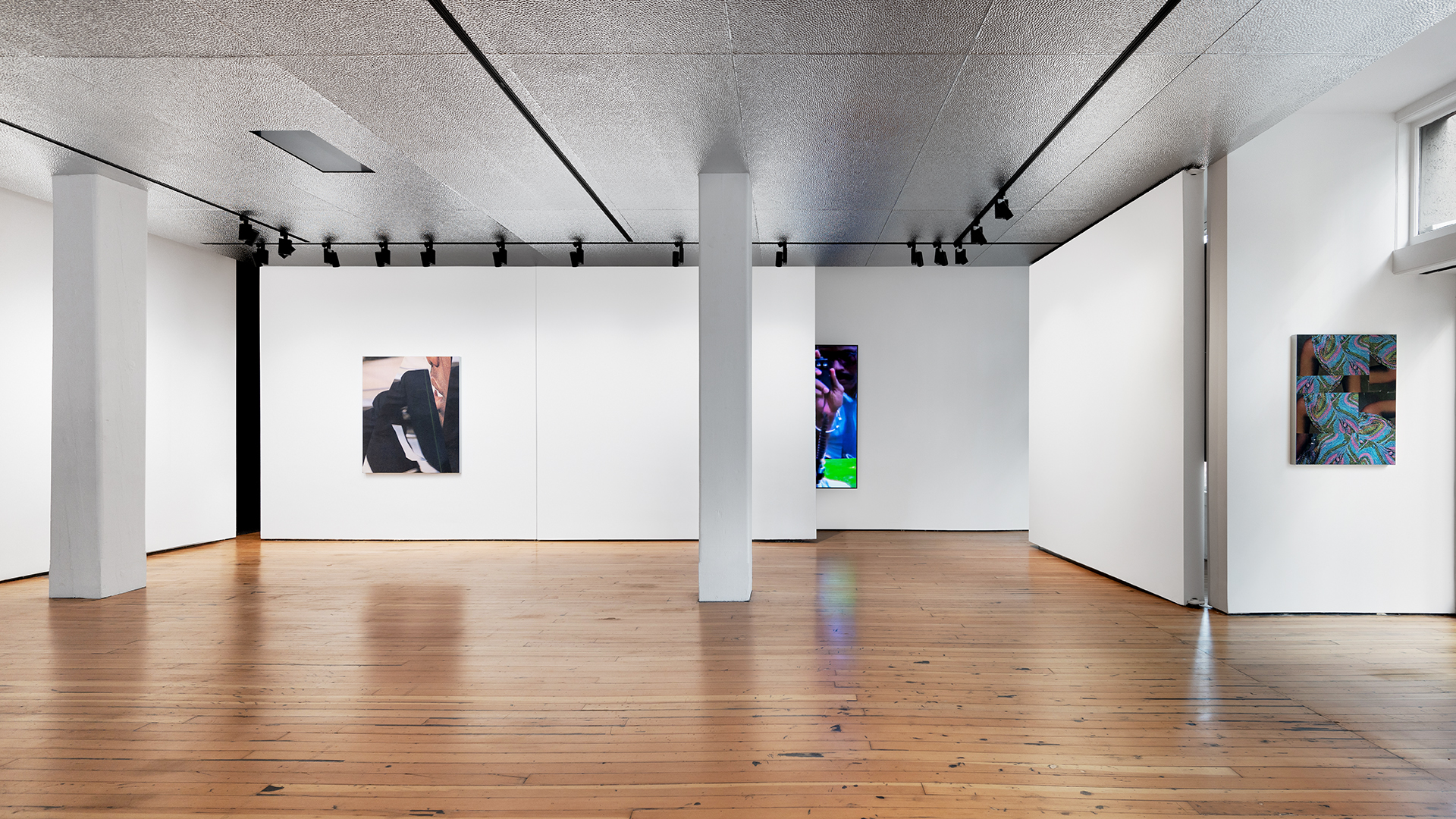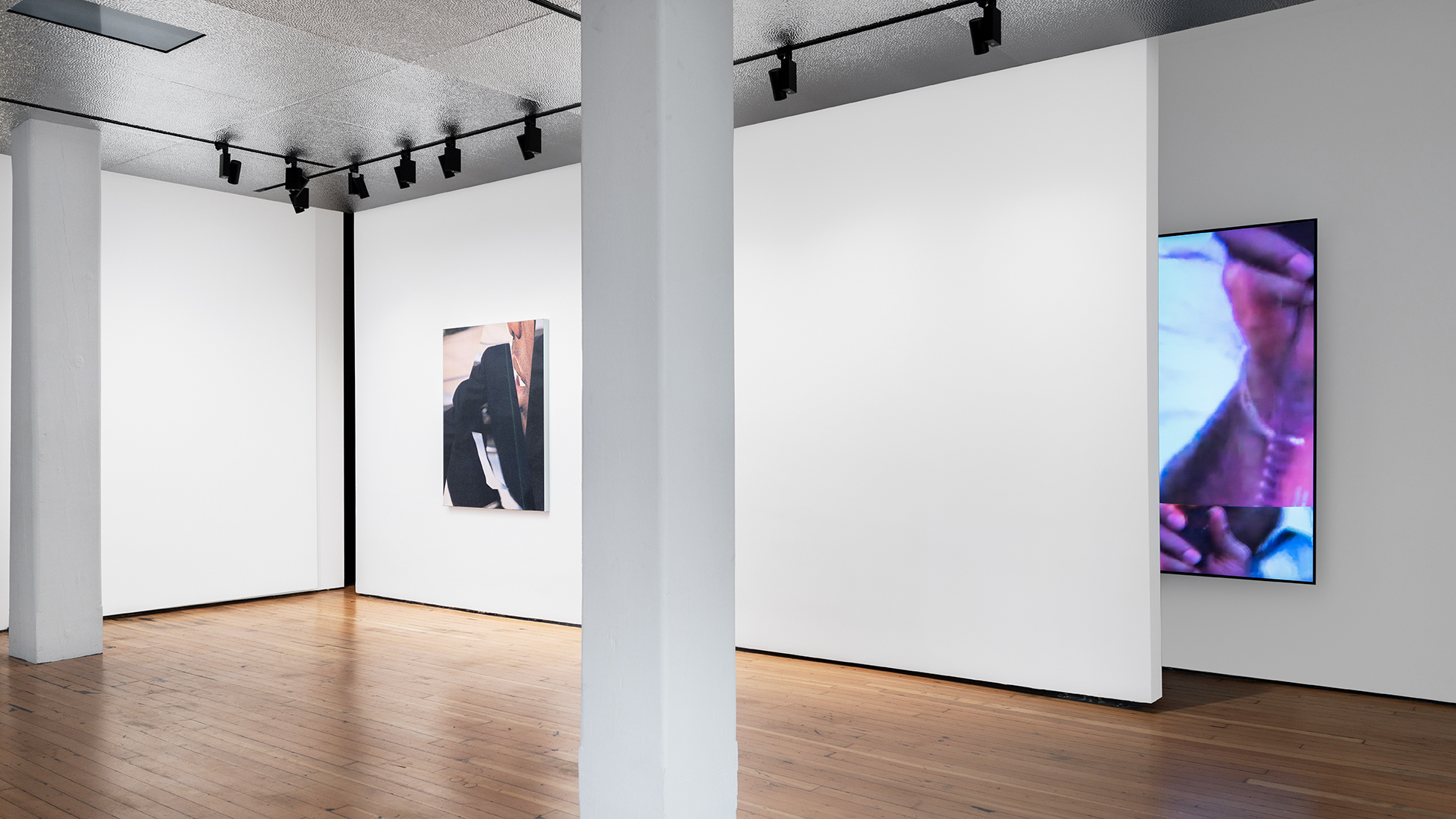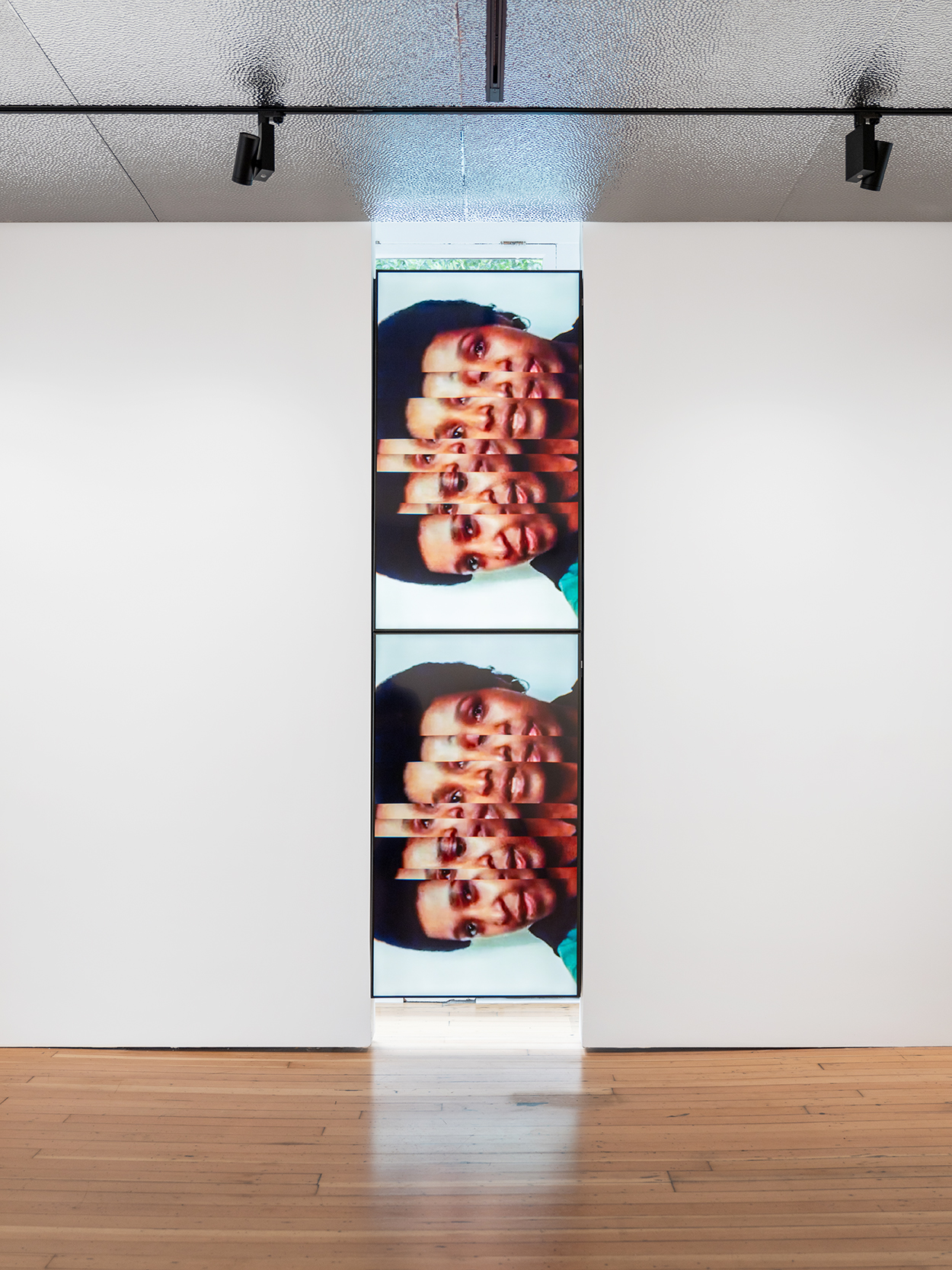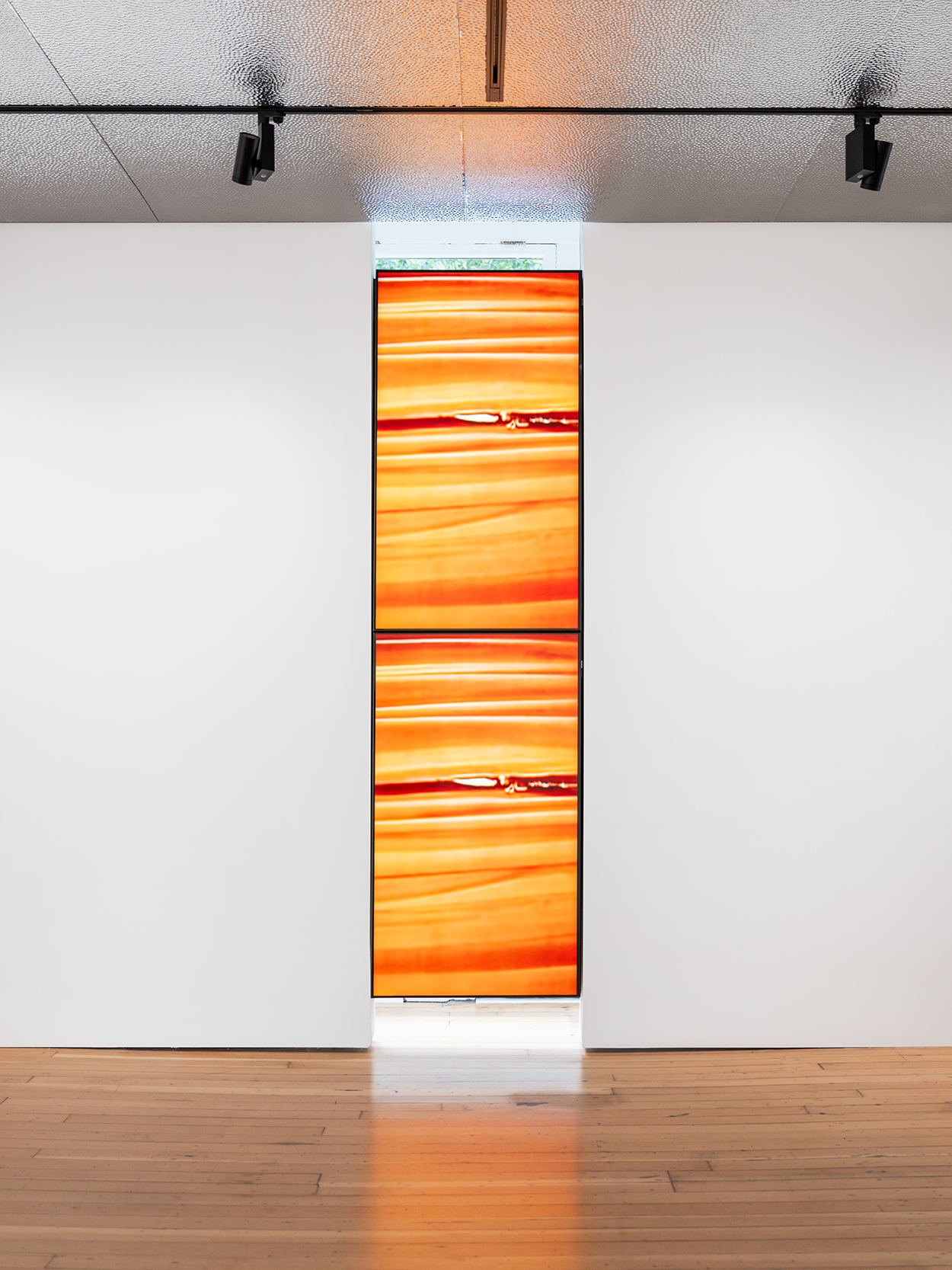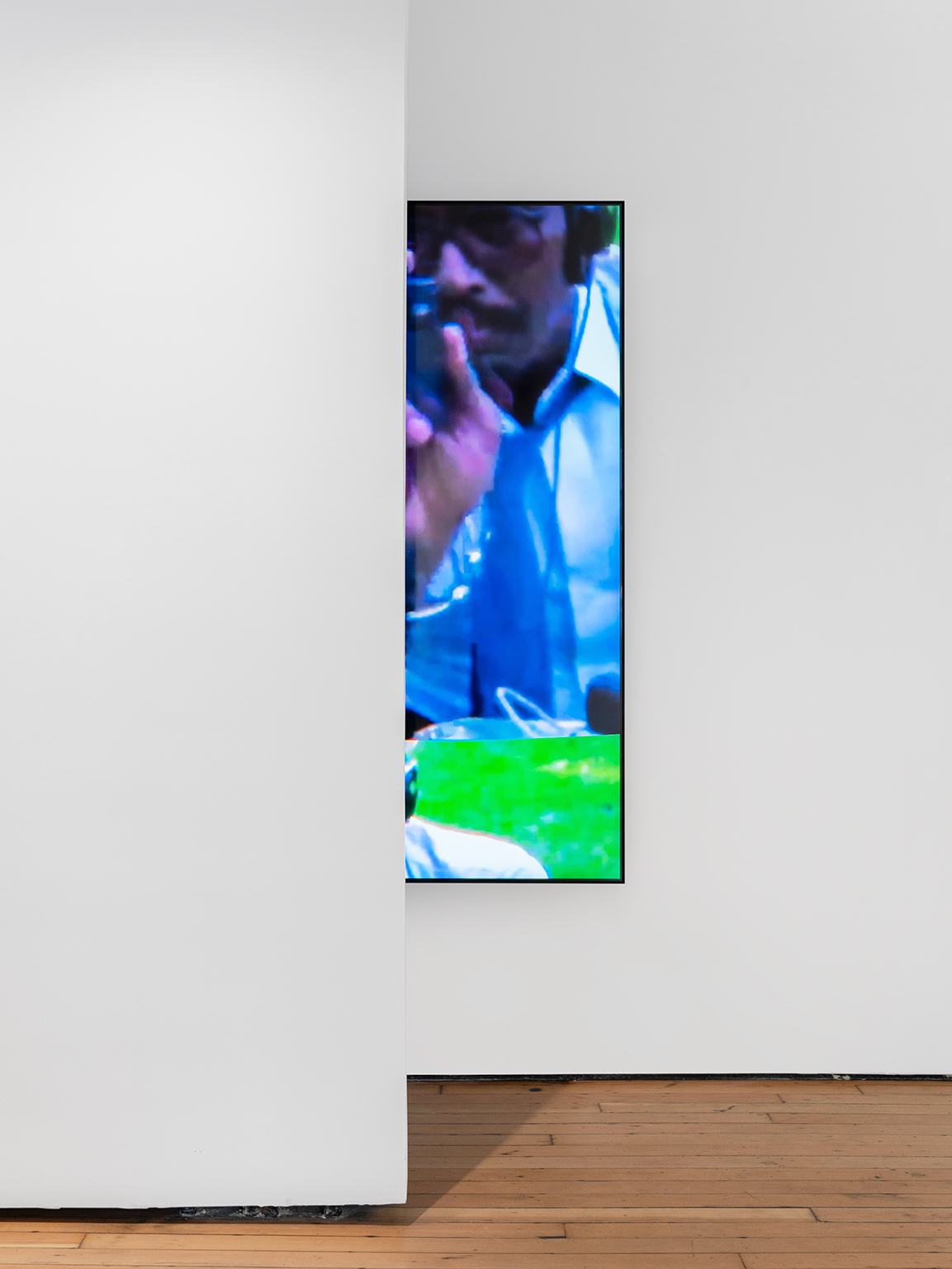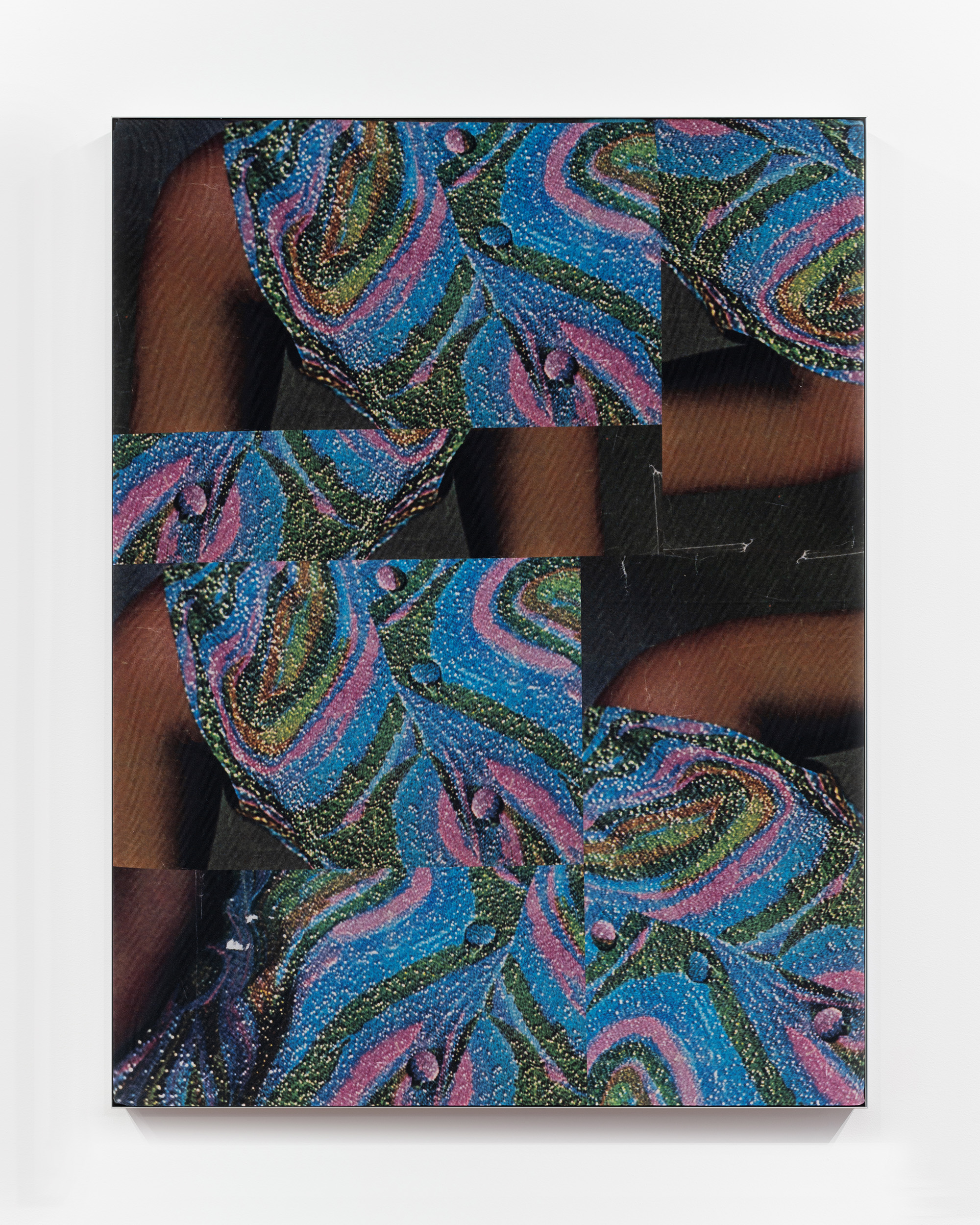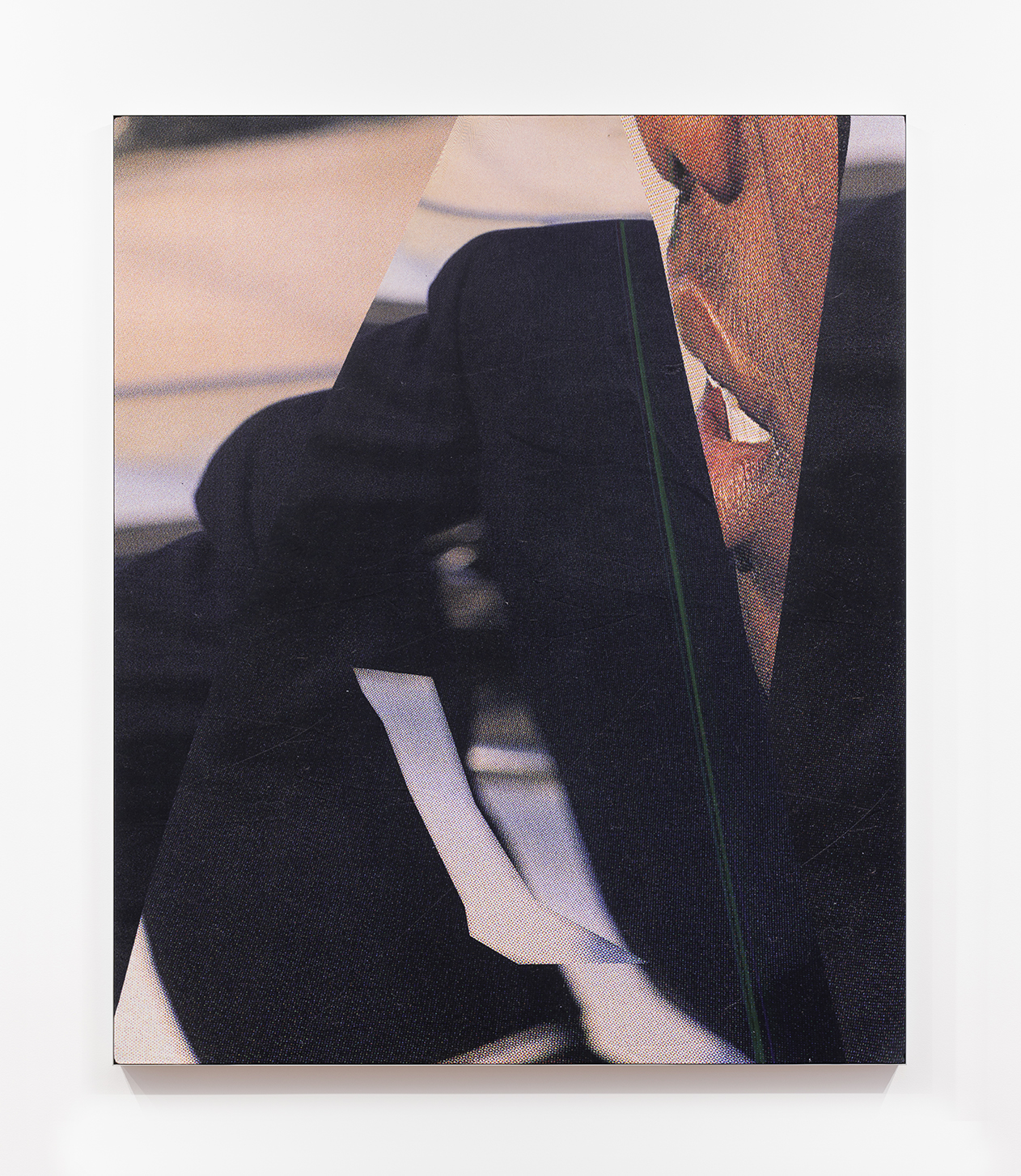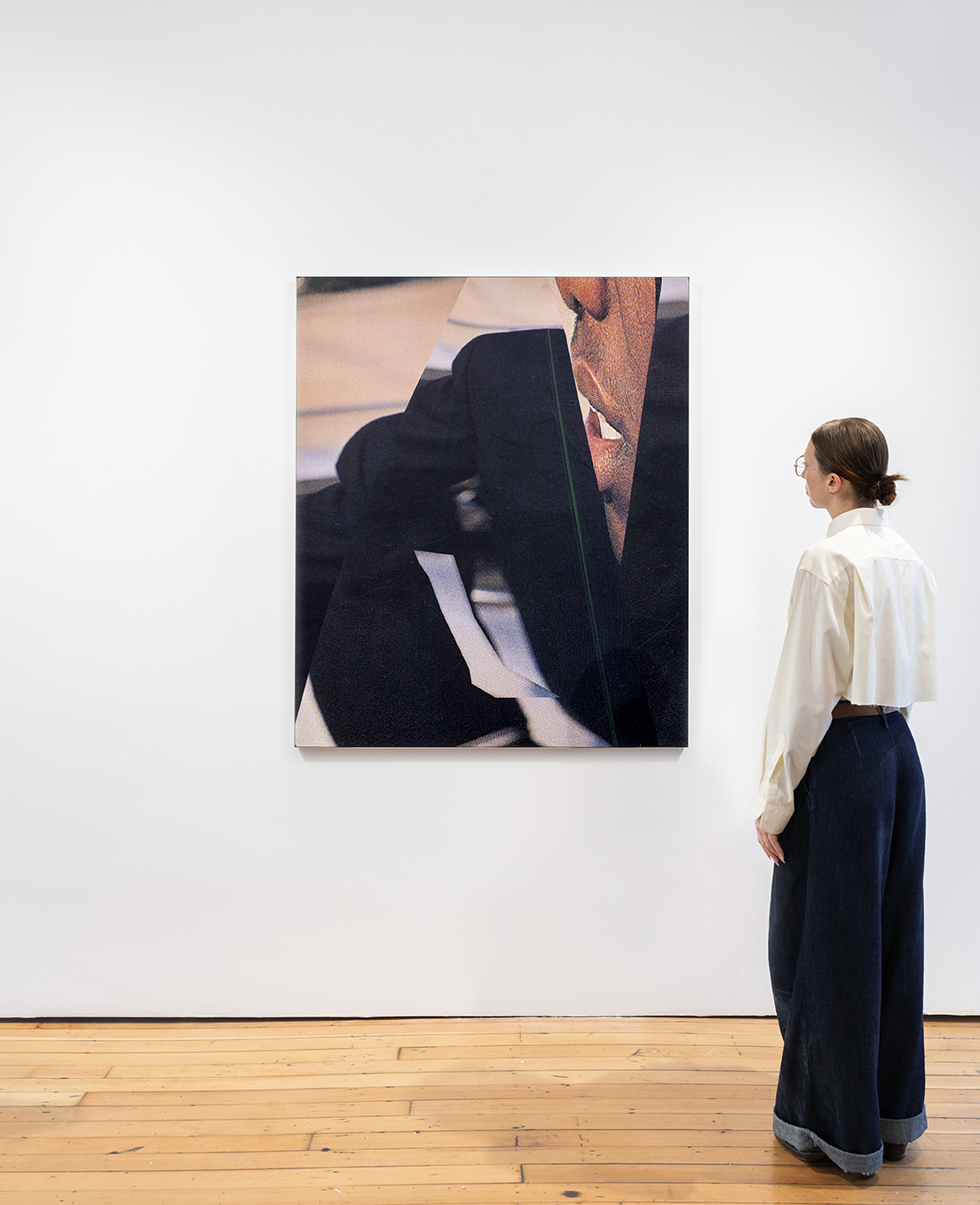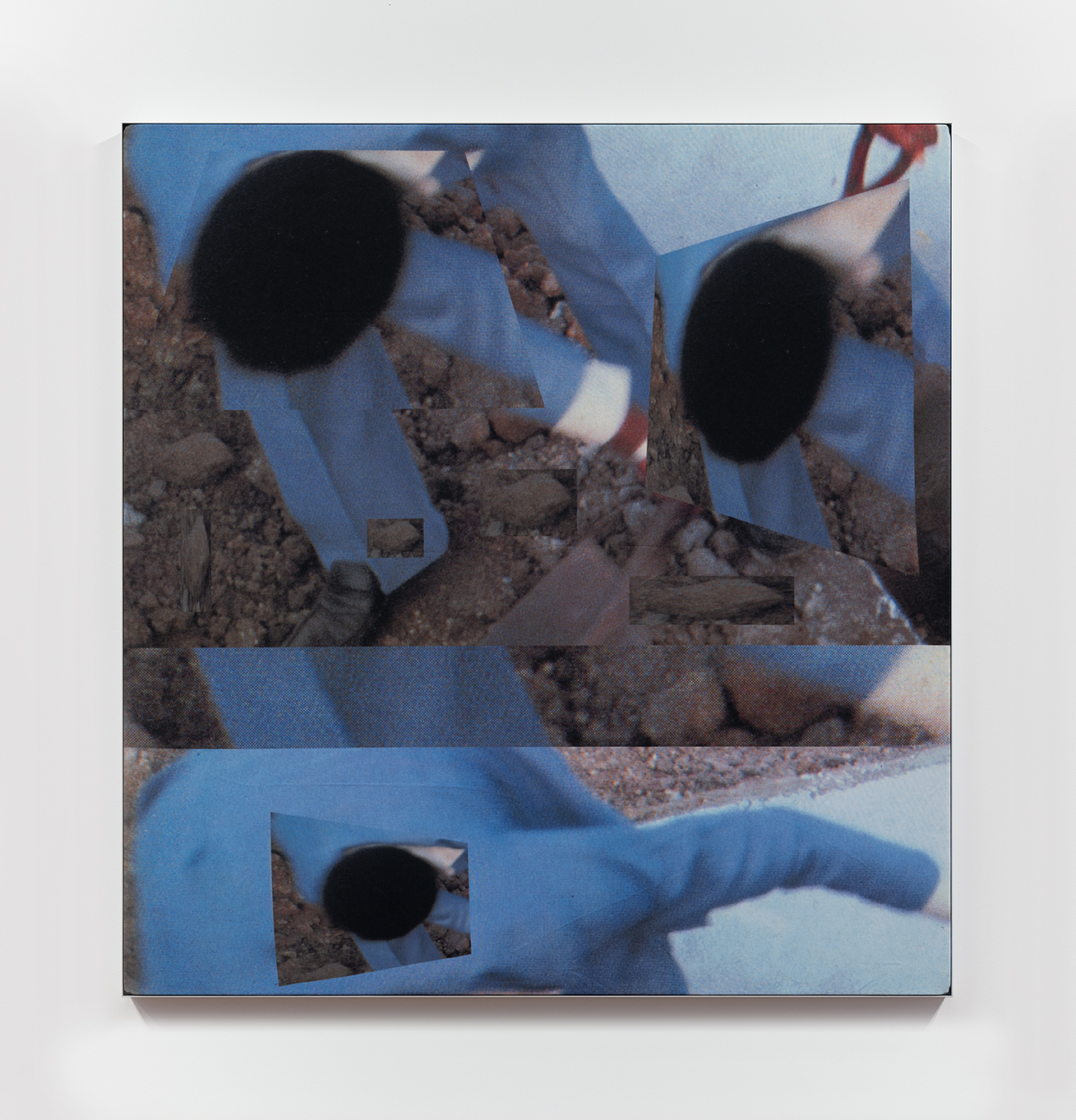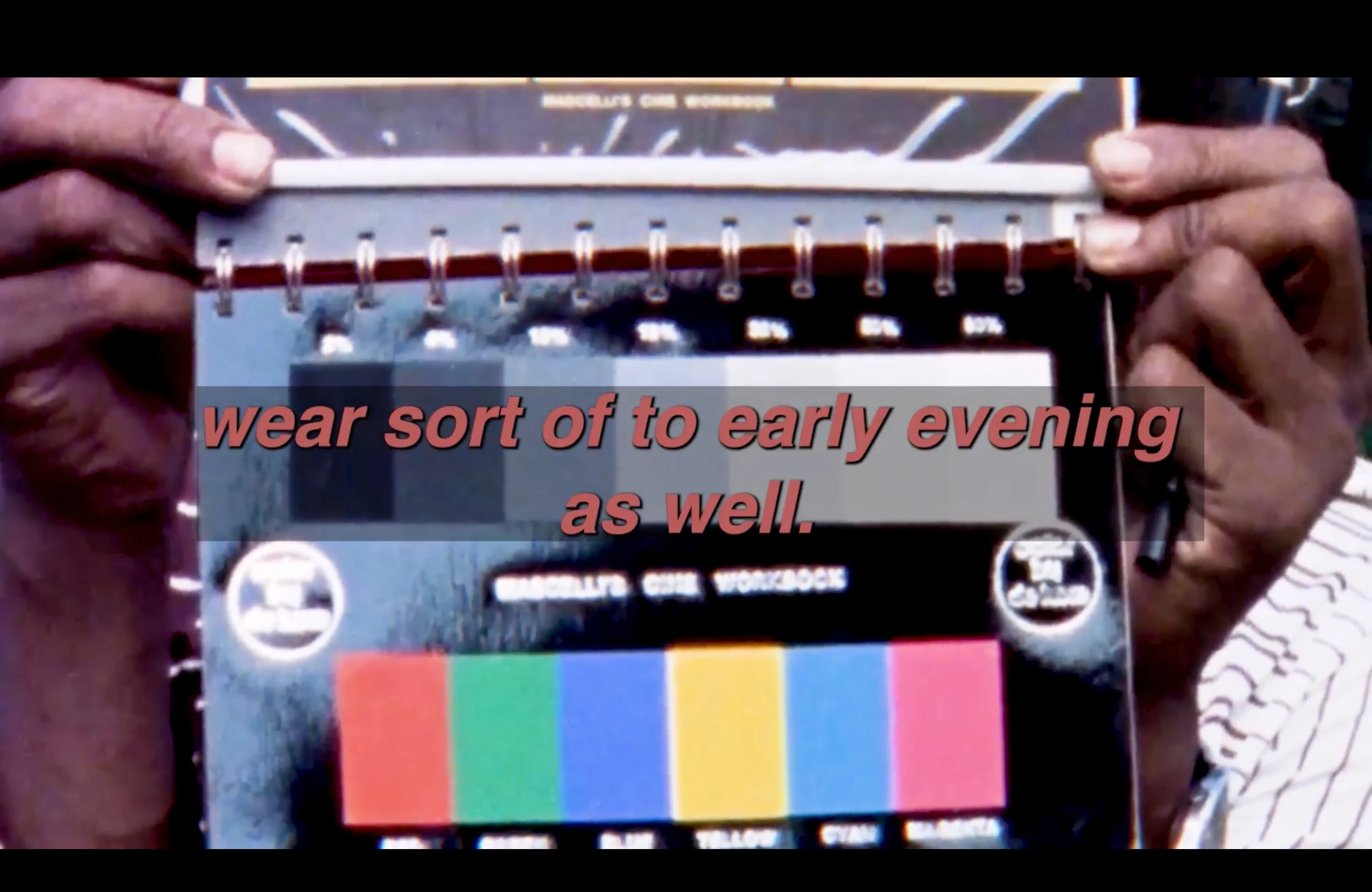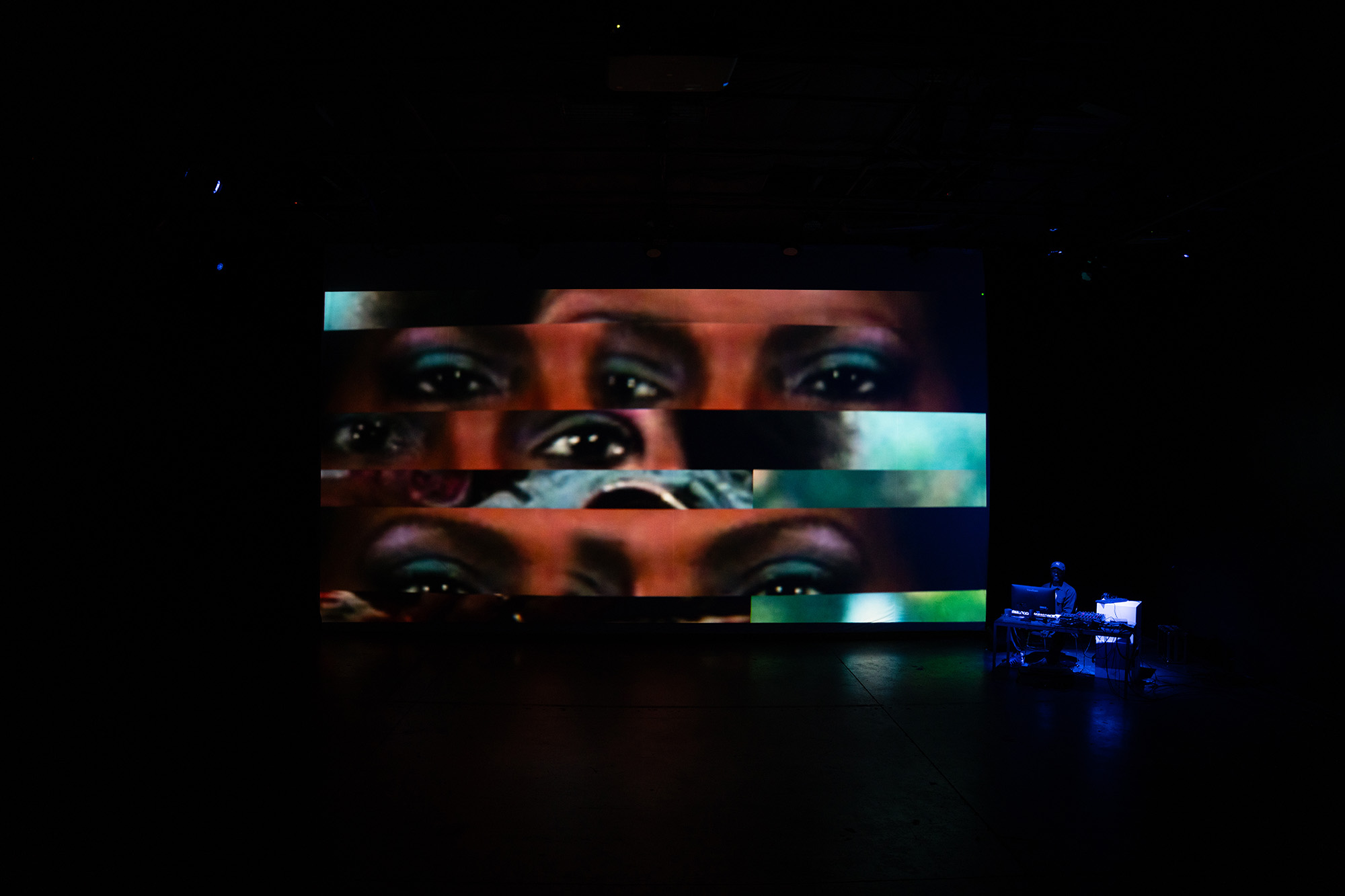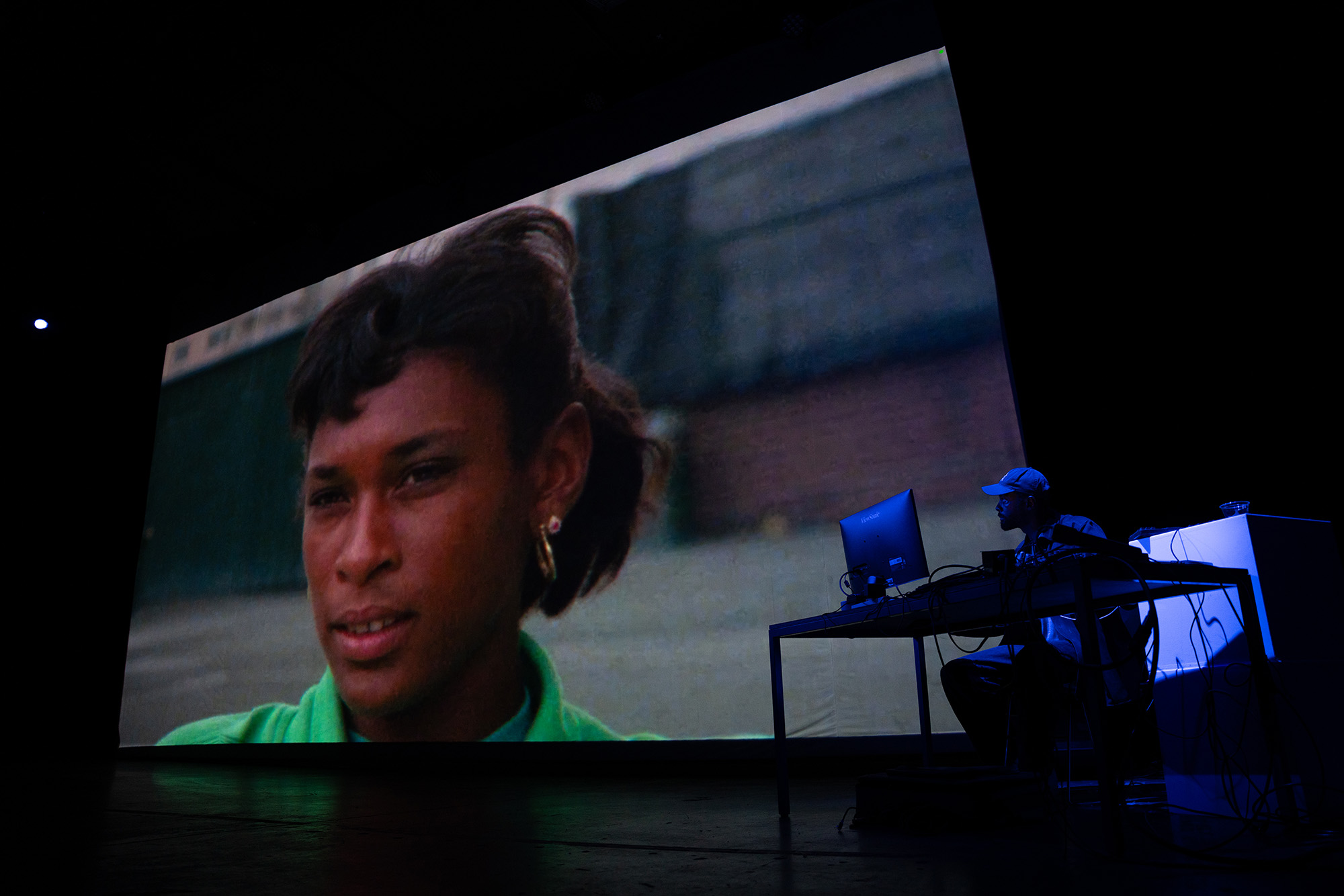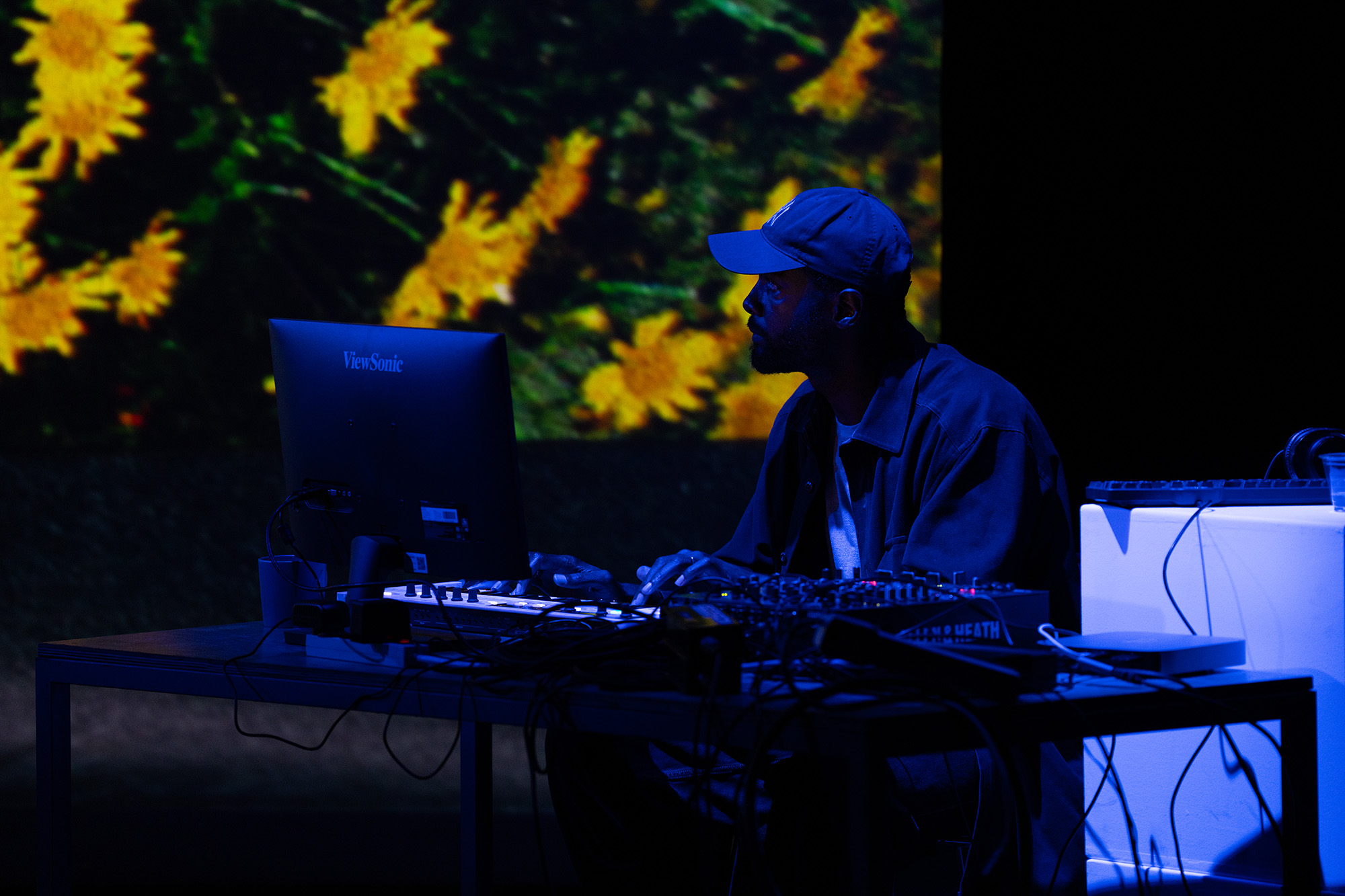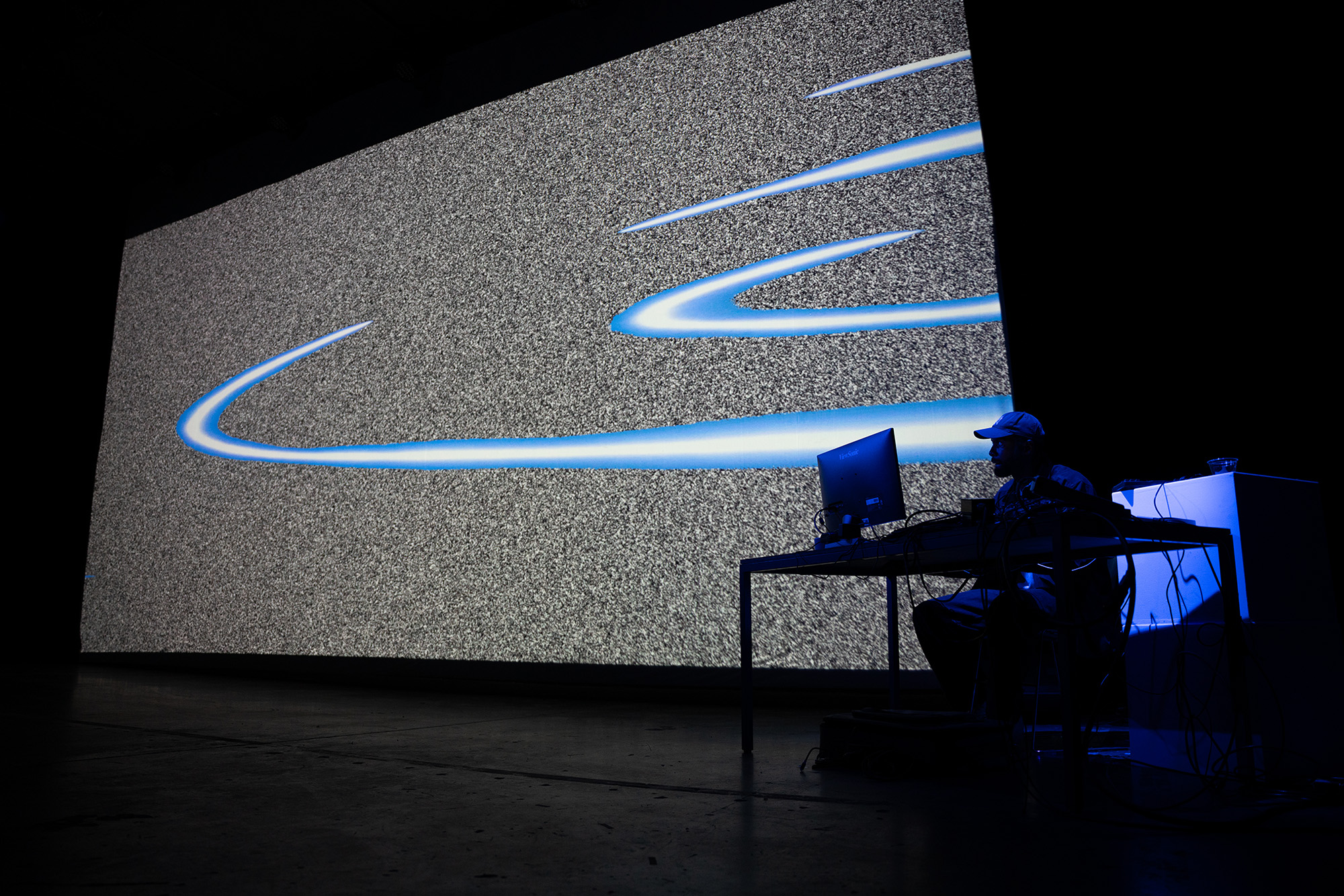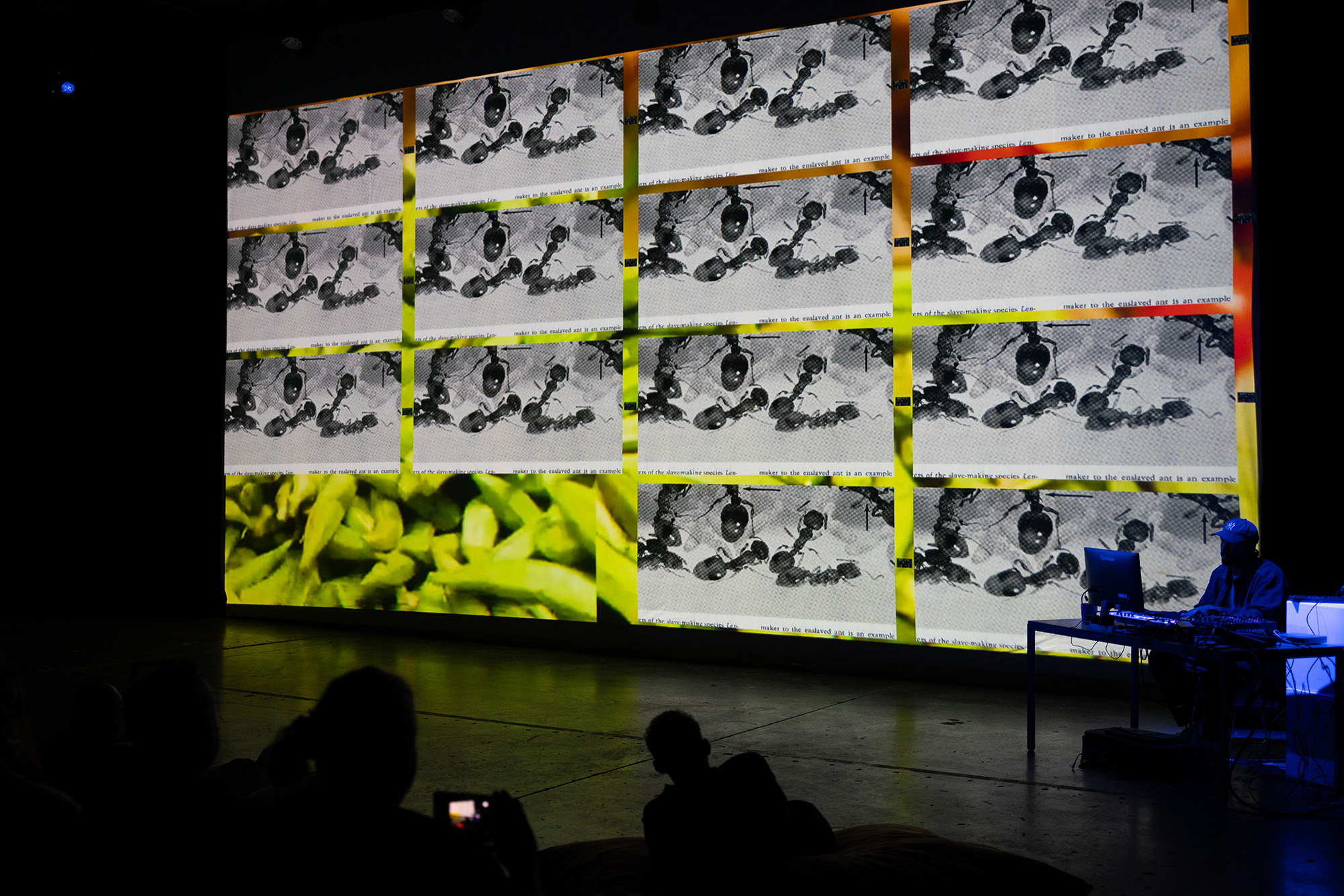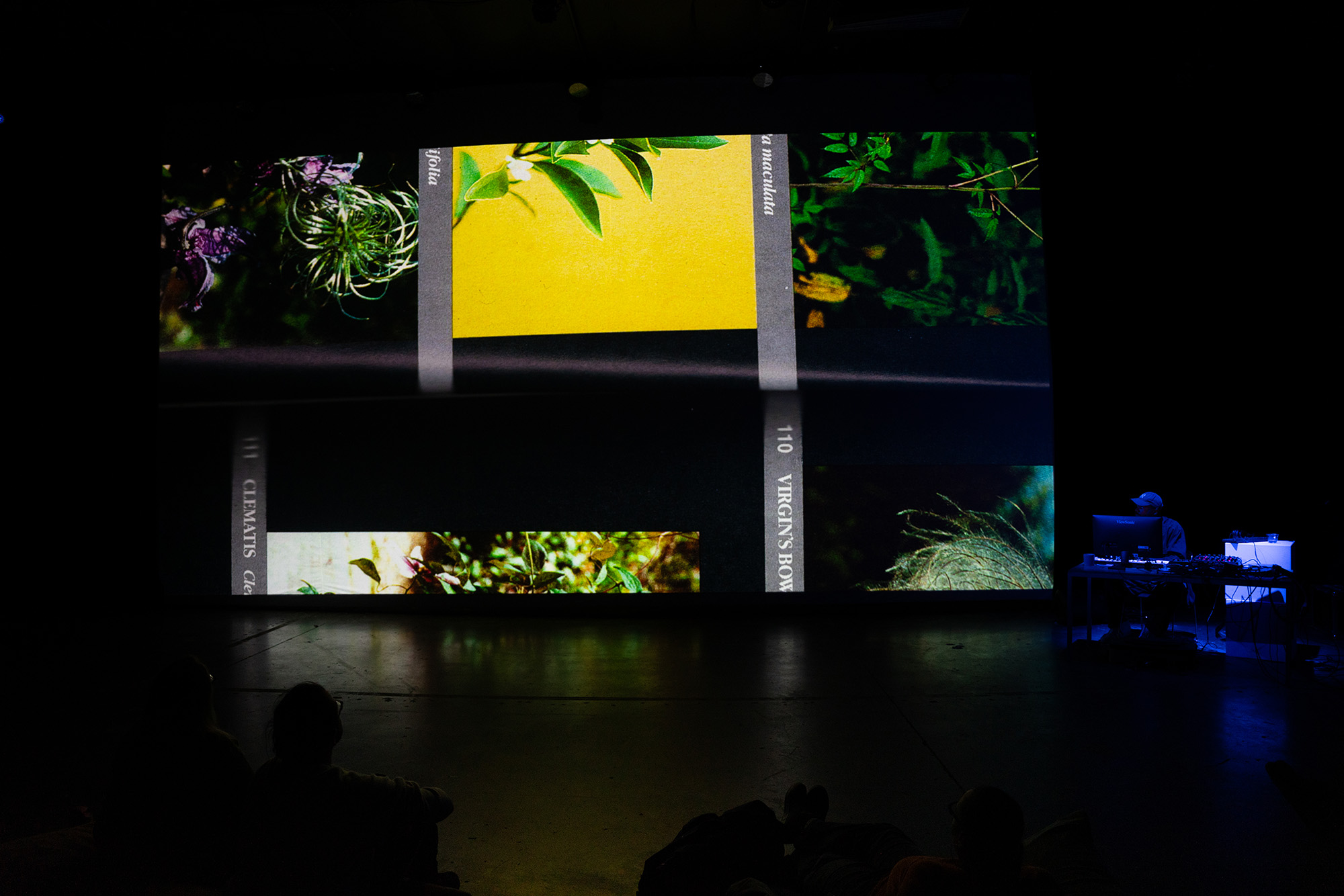ILY2 is thrilled to announce Noise / Grain, an exhibition of new works converging image, sound, and video by the Toronto-based artist Timothy Yanick Hunter. Noise / Grain will open on September 14 with a performance in the PICA Annex, co-presented by ILY2 as part of the 2024 Time-Based Art Festival. The exhibition will remain on view at ILY2 through November 9.
Timothy Yanick Hunter uses self-led research and methodologies of remixing and sampling to explore the experiential and aesthetic dimensions of the Black diaspora. References culled from a range of sources suggest shifting proximities, novel interactions between material and provenance. Historical photographs from museum archives meet ephemera from obscure corners of the Internet, overlaid with shards of music and spoken recordings. The resulting works are living mélanges, invested in decolonial modes of making and thinking about memory, temporality, and the unknowable facets of existence.
Noise / Grain is an arrangement of works that conduct experiments in repetition and the copy. Digital grains are extremely short acoustic events that can be perpetually transformed by manipulating their qualities in the original audio sample. Hunter, a first generation Jamaican in Canada, is closely influenced by dub music, an electronic genre that first emerged as an offshoot of reggae in late-1960s Jamaica. Dub remixes are made from existing recordings that are continually and substantially altered, finding limitless variation in the resources at hand and uncovering opportunities for iteration—citation and creation happen at the same time. Hunter here remixes fragments into unique auditory forms to forge an immersive environment that resists colonial constructions of total knowledge and finality. Highly mutable by nature, the grain becomes a powerful metaphor for mortality and the infinite small pieces that make up the universe: brief impressions meld into a new set of coordinates while engaging their own histories in a simultaneous doubling back and evolution.
As he reconfigures existent imagery, Hunter reveals subtle tensions between the familiar and a sense of drift, of human and cultural displacement. Remote View, 2024, is a fabric print depicting a person surrounded by rocks. They are photographed either turning away or in the process of standing up, their face hidden from view. Hunter modulates the composition, repeatedly splicing and rearranging the source image into a nonlinear and disrupted assemblage. He considers fabric and screens as similar mediators, windows into possibility; both display gaps and inconsistencies in the record and offer glimpses into new narratives. These surfaces are also fragile, subject to tears, holes, cracks, and static. Such instability reflects Hunter’s interest in incompletion and echo. The picture is always a facsimile.
Hunter’s interventions are tethered to global Black histories yet oriented towards the future and the endless potential within underground archival spaces. His skillful comingling of analog and technological formats evoke the slick energy of Y2K futurism, the excitement of being online in the early 2000s. File sharing, bootlegging, and early social media platforms made the Internet a virtual grab bag for exchange and discovery. Coming of age alongside LimeWire and MySpace, Hunter roots his current research practice in democratized access to information beyond institutional frameworks. For the artist, research is its own art form, born of sustained curiosity. The dialectic activity of uncovering and processing, of learning and integrating, is ultimately an optimistic one—the future is porous, the world an open field.
Timothy Yanick Hunter (b. 1990, Toronto, ON) is an artist and curator. He received his BA from the University of Toronto and has been an Artist in Residence at the Art Gallery of Ontario, Toronto; Museum of Contemporary Art Toronto, ON; and Black Rock Senegal, Dakar. He was included in the 2022 Toronto Biennial of Art and longlisted for the 2022 Sobey Art Award. He has exhibited nationally and internationally at the Center for Art, Research and Alliances, New York (2023); Cooper Cole, Toronto (2022); Bamako Encounters – The African Biennial of Photography, Mali (2022); Gallery 44, Toronto (2021); and A Space Gallery, Toronto (2020) among others. He lives and works in Toronto, ON.
